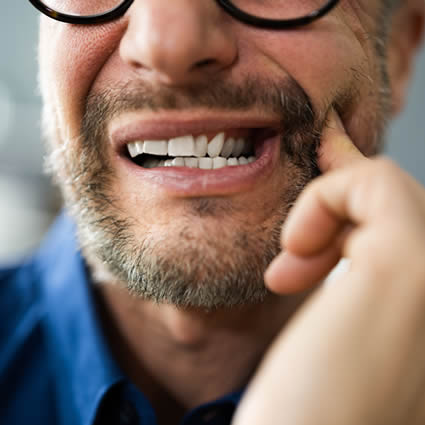
From a middle-of-the-night toothache to a painful abscess, dental emergencies can occur unexpectedly, causing discomfort and distress. Knowing how to handle these situations promptly can make a significant difference in preserving dental health.
At Excellence in Dentistry, we want to equip you with the information needed to handle a home dental emergency and know when to seek care straightaway.
Types of Dental Emergencies
Toothaches
- What to Do: Rinse the mouth with warm salt water, gently floss to dislodge any trapped debris, and apply a cold compress to alleviate pain. Avoid using aspirin directly on the gum or tooth. Take anti inflammatories which may be helpful in most dental pains. Also, do not lie flat, sleep half seated.
Knocked-Out Tooth
- What to Do: Handle the tooth by its crown (avoid touching the root), rinse gently with water if dirty, and try to reinsert it into the socket. If that’s not possible, store it in milk or saliva and seek immediate dental attention.
Cracked or Broken Teeth
- What to Do: Rinse the mouth with warm salt water, apply a cold compress to reduce swelling, and save broken tooth fragments. Seek emergency dental care as soon as possible.
Lost Dental Filling or Crown
- What to Do: Apply a temporary dental glue, available at pharmacies, to replace the restoration if you can. This will help to temporarily cover the exposed area and protect the tooth. Visit the dentist promptly to replace the filling or crown. Meanwhile, avoid hot, cold and acidic food or drinks.
Abscess or Gum Infection
- What to Do: Rinse the mouth with a warm saltwater solution, avoid hot or cold foods, do not lie flat, sleep half seated, and seek immediate dental care to address the infection.
Tips for Handling Dental Emergencies
- Stay Calm: Panicking can exacerbate the situation. Try to remain composed and focused.
- Contact Your Dentist: In any dental emergency, contact your dentist immediately for guidance and to schedule an emergency appointment.
- Use Pain Relief Responsibly: Over-the-counter pain relievers particularly anti-inflammatories like Ibuprofen are helpful in most cases and can help manage discomfort, but avoid applying aspirin or medication directly to the gums.
- Keep Emergency Supplies Handy: Having a dental first-aid kit at home or during travel can be beneficial. Include gauze, a small container, temporary dental cement, Bongel and the dentist’s contact information.
Preparing and knowing how to respond to dental emergencies is crucial for protecting oral health. While these tips offer initial aid, seeking professional dental care promptly is essential in all emergencies.
If you’re searching for an Emergency Dentist in Brisbane, contact Excellence in Dentistry to ensure the best possible outcome for your dental health.